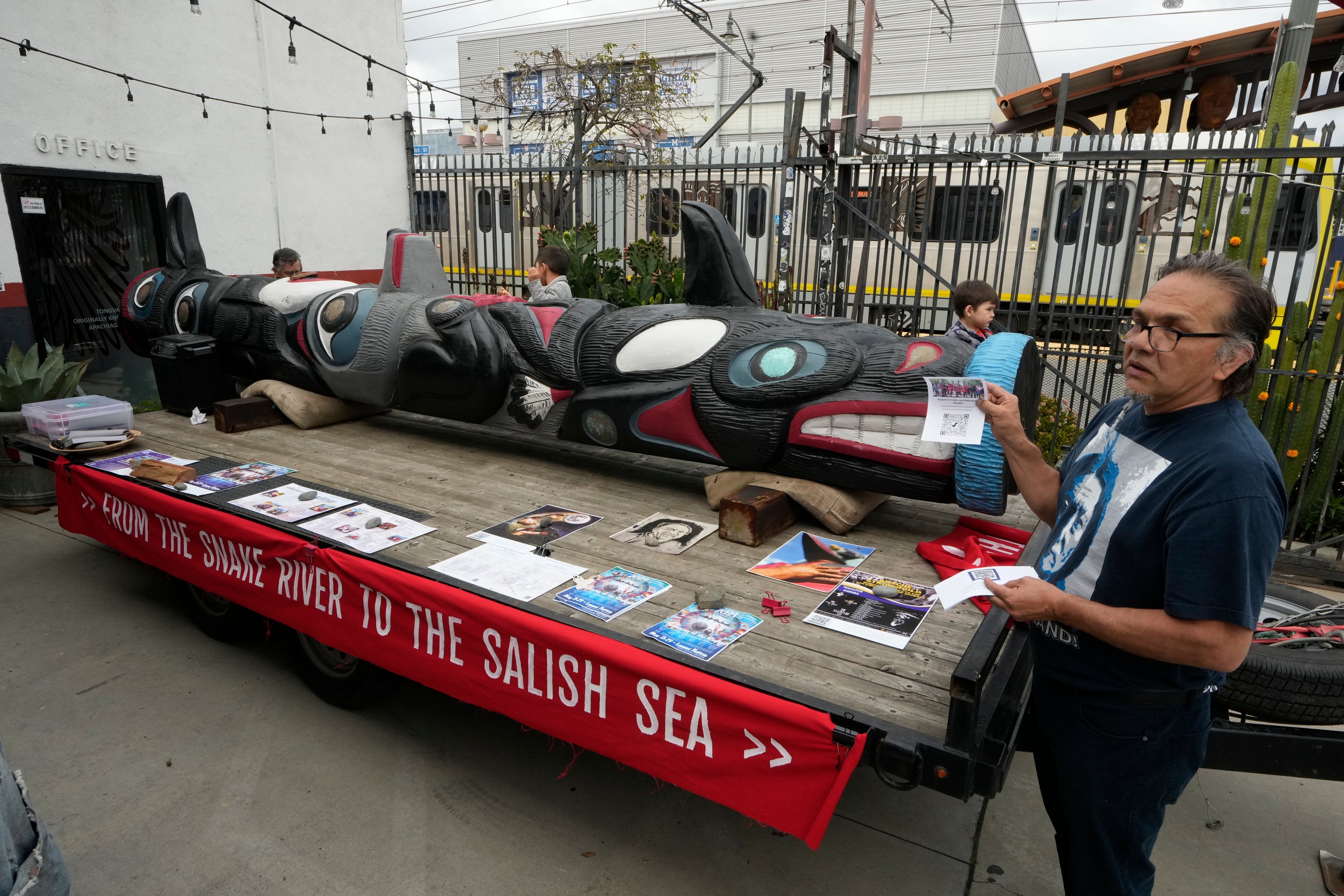How Apache Stronghold's fight to protect Oak Flat in central Arizona has played out over the years
Native American groups have struggled with mining interests over a decade over Oak Flat, a piece of national forest land in central Arizona

Oak Flat, a piece of national forest land in central Arizona, is at the heart of a yearslong struggle between Native American groups and mining interests that both consider it important for their future.
Resolution Copper, a subsidiary of international mining giants Rio Tinto and BHP, wants to develop the large deposit of copper ore deep under Oak Flat into a massive mine. The nonprofit Apache Stronghold considers the land sacred and says it should be preserved for religious ceremonies.
In a significant blow to Apache Stronghold, a divided federal court panel voted 6-5 on Friday to uphold a lower court’s denial of a preliminary injunction to halt transfer of land for the project.
Apache Stronghold says it will appeal to the U.S. Supreme Court.
Here is how the fight has played out over the years:
November 2013: Resolution Copper introduces its initial general plan of operations for a proposed mine at Oak Flat.
Dec. 12, 2014: The U.S. Senate approves a must-pass military spending bill that included the Oak Flat land swap, giving the national forest property to mining companies for development of America’s largest copper mine. A rider tucked into the legislation called for Resolution Copper to get 3.75 square miles (9.71 square kilometers) of forest land in return for eight parcels it owns in Arizona.
March 4, 2016: The Forest Service adds Oak Flat to the National Register of Historic Places. Arizona Republican Congressman Paul Gosar and Democratic Rep. Ann Kirkpatrick oppose the historic place designation, with Gosar saying it is “sabotaging an important mining effort.”
May 24, 2020: A Rio Tinto iron mining project destroys two rock shelters that were inhabited by Indigenous people for 46,000 years in Juukan Gorge in Western Australia state, prompting the resignation of the company CEO.
Jan. 12, 2021: Apache Stronghold sues the federal government, saying the Forest Service cannot legally transfer the land to Rio Tinto for several parcels the company owns and maintains the land around Oak Flat was reserved for Western Apaches in an 1852 treaty with the U.S.
Feb. 12, 2021: A federal judge rejects the request to keep the Forest Service from transferring the land to Resolution Copper. saying that because Apache Stronghold is not a federally recognized tribe it lacks standing to argue the land belongs to Apaches.
March 1, 2021: The U.S. Department of Agriculture pulls back an environmental review that had cleared the way for the land swap, saying it needed more time to consult with Native American tribes and others.
Oct. 21, 2021: Apache Stronghold asks a three-member panel of the 9th U.S. Circuit Court of Appeals to keep Rio Tinto from getting the Oak Flat property. Months later, the panel issues a 2-1 decision that the federal government can give the Oak Flat land to Rio Tinto, but then agrees to let a larger appeals panel hear the case.
March 21, 2023: Apache Stronghold tells a full panel of the 9th U.S. Circuit Court of Appeals that the Resolution project would prevent Native American groups from exercising their religion by destroying land they consider sacred. The 11-member panel says it will issue a decision in the coming months.
March 1, 2034: An 11-member “en banc” panel of the Ninth Circuit Court of Appeals votes 6-5 to uphold a lower court’s denial of a preliminary injunction to halt the transfer of land for the project.